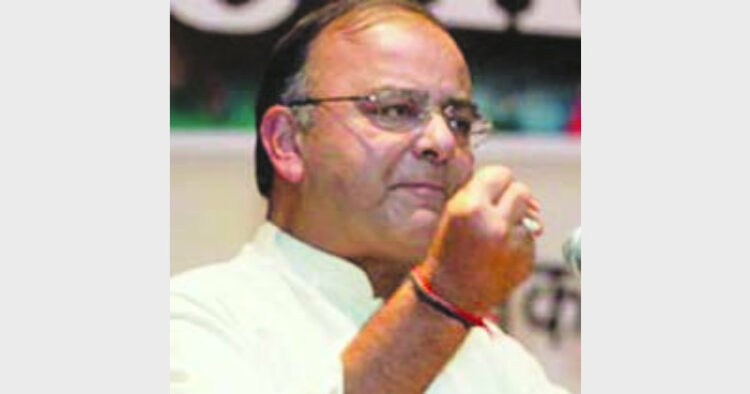IN FOCUS
By Arun Jaitley
The Chief Minister of Jammu & Kashmir, Omar Abdullah has recently suggested that the provisions of the Armed Forces (Special Powers) Act, 1958 could be made inapplicable to some parts of the State of Jammu & Kashmir. This has triggered a controversy since the security forces and the Ministry of Defence have consistently maintained that the enforcement of the provisions of the Act in the State of J&K is necessary. It is, therefore, necessary to examine the provisions of the law and the need for their enforcement and applicability to the State.
Jammu & Kashmir has been a disturbed area for more than two decades. It has been the victim of cross border terrorism. Certain domestic groups have also disputed the status of the State as an integral part of India. It is an effort of the entire country and the state administration that peace and normalcy in the State should be restored and that the people of the State should be protected from any form of violence or subversion. Terrorism and separatist violence needs both a political and security response. The security response may adversely impact on the day to day civilian life. It is harsh but necessary. In case there is laxity in terms of security the inevitable consequences would be that deterrence of those indulging in violence and separatist activities would disappear.
Beside the State Police, the ‘armed forces’ of the Union also assist the administration. The ‘armed forces’ is not merely the army and certain other military forces but they also include other armed forces of the Union, namely, Border Security Force, CRPF, Assam Rifles and ITBP. Once the whole State or a part of the State is declared as a ‘disturbed area’ the armed forces are called in aid of the civil powers in order to maintain peace and tranquility in the State.
Armed forces do not investigate crime. Their personnel are entitled to take necessary steps for maintenance of public order and use force after giving due warning to those who threaten law and order. They can enter into a premises and search them. They can destroy any dumps or fortified shelters from which armed attacks are made. They are entitled to arrest without warrant and even take the arrested person to the nearest police station without delay along with a report of such arrests. Thus, with regard to declaration of an area as a disturbed area it is an assessment and opinion formed by the government that the civilian administration and local state police are not enough to maintain the law and order in the State. If the local police alone can maintain law and order in the State, the declaration of that area as a disturbed area would not be necessary. The decision thus to continue the State or a part of the State as a disturbed area or otherwise has to be taken on security considerations and not political considerations. Even in districts where the army is withdrawn, the CRPF and other armed forces are still deployed. The local State police would be inadequate in most of these districts also. The powers given to the armed forces of the Union are not substantially different from the powers which the local police has. The local police can also make arrests, searches for the purpose of maintaining law and order. They can also use reasonable force required to maintain peace and tranquility. They can also destroy any arm dumps or fortified positions or shelters from where armed attacks are made by violent groups.
The only protection provided to the armed forces of the union is that before any prosecution, suit or legal proceedings is initiated against any personnel of the armed forces for acting under this Act, prior sanction of the Central Government would be necessary. When I visited the State last year as a part of the all party delegation I was informed by the officers of the para military forces that more than 2500 applications for prosecuting personnels of armed forces were pending with the Central Government. The Act, therefore, gives protection to the personnel of armed forces that they cannot be prosecuted without the sanction of the Central Government. In case this protection is withdrawn it would empower various vested interests to prosecute officials of the armed forces and other para military forces indiscriminately. Obviously, this would dis-incentivise personnel of these forces from taking adequate steps against the separatist groups. When the security forces are in favour of retention of this law, it would be highly imprudent to allow anyone to seriously argue that political considerations require that this law be withdrawn or its enforcement be restricted only to certain areas. We seriously hope that a situation does emerge in future that the applicability of this law is either not necessary or is restricted only to some areas. That situation does not seem to have arrived as yet. The withdrawal of this law would leave the administration of the unprotected districts only in the hands of the local police and thus incentivizing the separatist and violent groups to increase their activities in these areas. It would, therefore, be politically more prudent for the Chief Minister of Jammu & Kashmir not to initiate a debate at a stage when circumstances still warrant the continuation of the operation of the law.
(The writer is Leader of Opposition, Rajya Sabha)














Comments